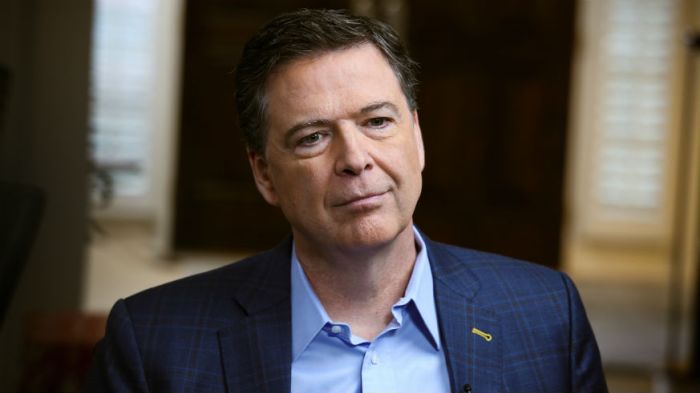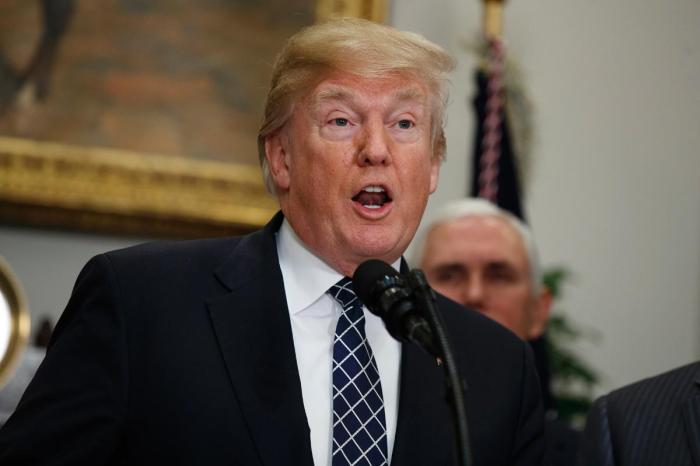President Trump‘s appointment of Matthew Whitaker to serve as acting attorney general has drawn controversy on many fronts, from its premise (in the wake of Jeff Sessions’ resignation/firing) and constitutionality to Whitaker’s qualifications, his GOP partisanship and his statements criticizing the Mueller investigation — which he is now overseeing.
Who is Matthew Whitaker, and how did he get here?
1. He has referred to Robert Mueller’s Russia investigation as a “witch hunt,” a “fishing expedition” and a “lynch mob.”
In an August 2017 op-ed for CNN, Matthew Whitaker urged the Justice Department to clearly limit the special counsel’s investigation of Russian interference in the 2016 presidential election. He warned that the investigation could resemble “a mere witch hunt” and transform into “a political fishing expedition.” In a tweet that same month, he shared a piece that referred to the “Mueller lynch mob.”
Whitaker joined the Trump administration the next month.
Worth a read. “Note to Trump’s lawyer: Do not cooperate with Mueller lynch mob” https://t.co/a1YY9H94Ma via @phillydotcom
— Matt Whitaker ?? (@MattWhitaker46) August 7, 2017
In an earlier CNN appearance, Whitaker suggested that Trump might not fire Robert Mueller to shut down the Russia investigation, but instead make a recess appointment to replace Jeff Sessions and reduce the budget for the special counsel’s probe, essentially starving it.
2. He once defended the Trump campaign taking a meeting with the Russian lawyer promising dirt on Hillary Clinton.
Here’s the new acting Attorney General in July 2017 defending Don Jr.’s decision to take the Trump Tower meeting with Russians offering “dirt” on Hillary Clinton: “You would always take that meeting.”(via CNN) pic.twitter.com/qFAhnhSSJK
— Kyle Griffin (@kylegriffin1) November 7, 2018
“You would always take that meeting,” Matthew Whitaker on CNN.
It is against the law for political campaigns to accept assistance or anything of value from foreign governments.
3. His qualifications have been questioned.
Whitaker served as a U.S. attorney for the Southern District of Iowa from 2004 to 2009. He ran for the U.S. Senate from Iowa in 2014 on a very conservative platform and finished fourth for the Republican nomination. (It went to Joni Ernst.) Whitaker was an attorney in private practice from 2009 to September 2017, when he joined the Trump administration as Jeff Sessions’ chief of staff.
Typically, the associate attorney general (in this case, Rod Rosenstein) or the #3 in the Justice Department steps in for a departing attorney general — not the chief of staff, who is technically an aide and is not confirmed by the Senate.
for last 10 yrs, Matt Whitaker was a failed would-be Iowa politician practicing private law.
in Aug 2017 he wrote CNN column saying Mueller was on witch hunt–4 wks later he was appt’d Session’s chief of staff.
one year later he’s Acting AG
— Eric Boehlert (@EricBoehlert) November 7, 2018
4. He once said that judges should be Christian.
At a conservative forum in April 2014, when he was a Senate candidate, Whitaker said judges should have a “biblical view of justice” and suggested that non-religious candidates should be blocked. “Because natural law is often used from the eye of the beholder, if you will,” he said. “I’d like to see things like their world view. What informs them? How have they lived their life? Are they people of faith? Do they have a biblical view of justice? Which I think is very important.”
He added: “What I know is that as long as they have that worldview, that they’ll be a good judge. And if they have a secular worldview, that ‘this is all we have here on Earth’, then I’m going to be very concerned about how they judge.”
5. He was involved with a company called a “scam” by the Federal Trade Commission.
According to CNN, Matthew Whitaker “was on the advisory board of a Florida company that was shut down by the Federal Trade Commission and served with a $26 million judgment earlier this year for what court documents called ‘a scam that has bilked thousands of consumers out of millions of dollars.'” World Patent Marketing promised to help inventors get patents.
6. Some say his appointment was unconstitutional.
On Fox News yesterday, the channel’s senior judicial analyst, Andrew Napolitano, said, “Under the law, the person running the Department of Justice must have been approved by the United States Senate for some previous position. Even on an interim post.” On MSNBC Thursday afternoon, constitutional law scholar Lawrence Tribe concurred, saying that according to the Constitution, anyone who is accountable only to the president cannot be appointed — they “must be subject to the advice and consent of the Senate.” Whitaker was not.



















